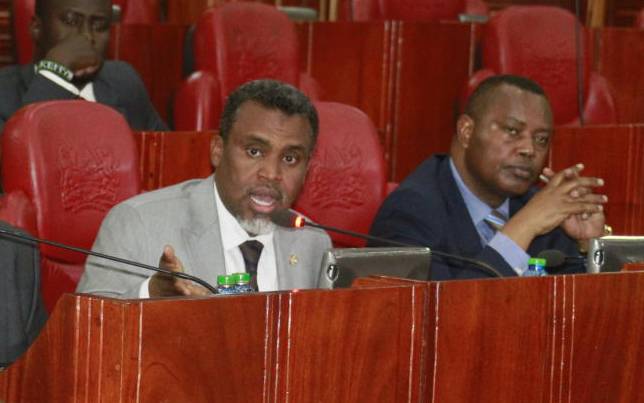×
The Standard e-Paper
Smart Minds Choose Us

Director of Public Prosecution(DPP) and Director of Criminal Investigation(DCI) George Kinoti when they appeared before the Senate Justice and Legal Affairs Committee to shed light on the war against Corruption at Parliament on December 5, 2018. [Boniface Okendo, Standard]
Lawyers yesterday urged Directorate of Criminal Investigations (DCI) head George Kinoti to work more closely with Director of Public Prosecutions (DPP) Noordin Haji.